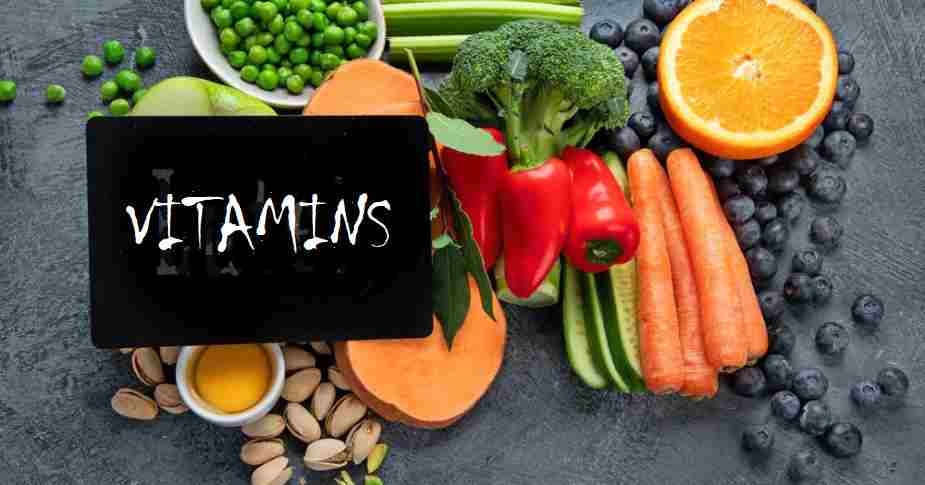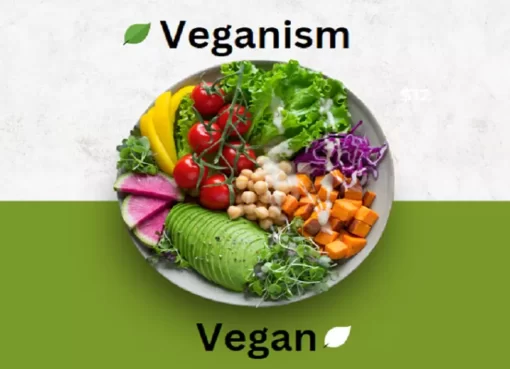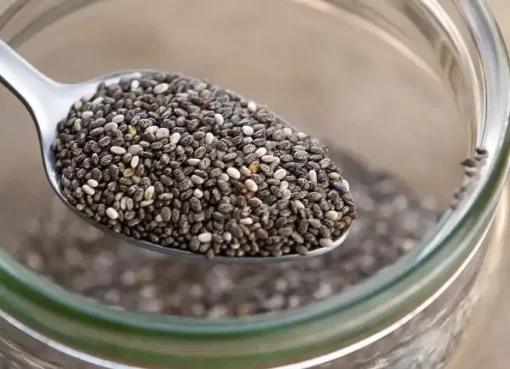Outline
Maintaining a healthy diet can really help stop different illnesses, even ones like diabetes that can hurt your eyes. And it turns out that eating a well-rounded diet can also stop eye problems from getting worse.
When it comes to eye vitamins, it’s not just one vitamin that does the trick.. Experts believe that a lot of different nutrients that are good for your eyes team up together. So, here’s a list of some vitamins that have been proven to be good for keeping your eyes in great shape.
Vitamin A
Of all the eye vitamins, vitamin A is absolutely the most essential for your vision. Its deficiency can cause night blindness, particularly among older individuals, and if it progresses, it can result in permanent blindness.
Vitamin A helps the retina make certain pigments that allow us to see. It also helps keep the cornea (clear front part of the eye) hydrated and protected. This vitamin is also a component of rhodopsin, a protein in your eyes that allows you to see in low-light conditions.
Vitamin A deficiency is rare in developed countries, but if unaddressed, it can lead to a serious condition called xerophthalmia.
Xerophthalmia is a progressive eye disease that begins with night blindness. If vitamin A deficiency continues, your tear ducts and eyes can dry out. Eventually, your cornea softens, resulting in irreversible blindness
Liver, dairy products, Sweet potatoes, green leafy vegetables, pumpkins, and bell peppers are great natural sources of vitamin A.
Beta Carotene
Beta carotene is thought to be important because it’s a precursor of vitamin A.
This is a pigment from a family of compounds called carotenoids, which are well known for giving carrots (and other fruits and vegetables) their orange color.
Of all the carotenoids, beta-carotene is the most important for the product of vitamin A.
Fortunately, deficiencies are rare in the United States, likely because many processed foods like breakfast cereals are fortified with vitamins.
To get beta carotene (which gets converted into vitamin A) in the body, look for any orange vegetable, such as carrots, winter squash, or sweet potatoes.
High amounts of beta carotene have been shown to raise the risk of lung cancer in people who smoke.
Lutein and zeaxanthin
Lutein and zeaxanthin belong to the carotenoid family, a group of beneficial compounds synthesized by plants.
These carotenoids are notably present in the macula and retina of the human eye, where they play a pivotal role in filtering potentially harmful blue light, providing essential protection against ocular damage.
Their significance extends to the essential support of retinal function and the robust protection of ocular tissues against oxidative stress.
Positioned at the posterior portion of the eye, the retina acts as a complex conduit, transmitting incoming light to the brain, where it undergoes intricate interpretation, ultimately resulting in visual images.
In essence, lutein and zeaxanthin serve as a protective shield for the retina, similar to sunglasses guarding against the adverse effects of ultraviolet (UV) radiation.
A comprehensive study conducted in 2022 probed into their long-term effects, revealing a remarkable facet of their protective capabilities. These compounds not only serve as guardians but exhibit an extraordinary capacity to defend against the late-stage onset of Age-Related Macular Degeneration (AMD).
Surprisingly, these findings suggest that lutein and zeaxanthin may outperform beta carotene in this regard, all while mitigating concerns of lung cancer risk.
Furthermore, scientific research points towards the potential of these plant-derived compounds in preventing cataracts. Individuals who embarked on a regimen involving supplements containing 15 mg of lutein three times weekly over a span of two years experienced marked enhancements in their visual acuity.
Lutein and zeaxanthin frequently co-occur in a variety of foods.
Remarkably, even modest doses of 6 mg of these carotenoids can yield substantial benefits.
A diet rich in fruits and vegetables inherently furnishes these nutrients, with notable sources being berries, broccoli, egg yolks, papaya, peaches, mangoes, cooked spinach, kale, and collard greens. Thus, ensuring the incorporation of these foods into one’s diet can be an effective strategy for reaping the benefits of lutein and zeaxanthin.
Vitamin E
Vitamin E boasts potent anti-oxidant properties. Of all the eye vitamins, it plays next to the best role in safeguarding your eyes.
Several ocular conditions are closely tied to oxidative stress induced by free radicals. Vitamin E comes to the rescue by preventing these free radicals from breaking down essential fatty acids within the retina.
It’s important to note that vitamin E is part of the family of fat-soluble antioxidants, which means they can blend seamlessly with other fat cells.
An extensive 7-year study conducted on 3,640 individuals afflicted with Age-Related Macular Degeneration (AMD) yielded promising results. The participants who took a daily supplement known as Age-Related Eye Disease Studies (AREDS), containing 400 IU (international units) of vitamin E along with other nutrients, witnessed a remarkable 25% reduction in the risk of advancing to the advanced stages of the condition.
Furthermore, there exists some scientific evidence suggesting that a diet rich in vitamin E may offer protection against the development of age-related cataracts but the research shows no significant benefit from taking a supplement
Nonetheless, it is prudent to maintain a diet that ensures an adequate intake of vitamin E to promote overall eye health.
You can find ample sources of vitamin E in various foods, including nuts, seeds, salmon, avocado, mango, red bell peppers, pumpkin seeds, beets, and leafy green vegetables. These dietary choices contribute to the preservation of healthy eyesight.
Vitamin C
Vitamin C plays a vital role in supporting eye health, primarily by shielding them from harmful free radicals.
This nutrient is essential for the formation of collagen, a structural protein present throughout the body, responsible for maintaining the integrity of various tissues, including the eyes, skin, muscles, and ligaments.
It contributes significantly to the structural integrity of the sclera and the cornea, two essential components of the eye.
An insightful observational study uncovered that maintaining a daily vitamin C intake exceeding 490 mg led to a substantial 75% reduction in the risk of developing cataracts, compared to those with daily intakes of 125 mg or less.
Vitamin C, along with other essential nutrients plays a key role in the formulation of supplements known as Age-Related Eye Disease Studies (AREDS). These supplements hold promise in mitigating the progression of age-related macular degeneration (AMD), a condition with significant implications for vision.
When diligently consumed on a daily basis, research suggests that AREDS may curtail the risk of this condition advancing by an impressive 25%.
To boost your daily vitamin C intake, consider incorporating foods rich in this nutrient into your diet. Citrus and tropical fruits, bell peppers, kiwis, mangos, watermelons, broccoli, and kale stand out as excellent options to fortify your nutritional regimen.
Vitamin D
Vitamin D is well known for its role in enhancing bone and skeletal health.
In addition to this, it also contributes to the well-being of various types of cells, including those within the eyes.
It’s worth noting that a deficiency in vitamin D has been linked to conditions like diabetes, which can have detrimental effects on eye health.
Dry eye syndrome (DES) is a prevalent condition characterized by issues with the tear film and the surface of the eye, resulting in discomfort, visual disturbances, and instability in the tear film.
Furthermore, it can potentially lead to harm to the eye’s surface. Intriguingly, research has indicated that many cases of DES are associated with insufficient levels of vitamin D or inadequate exposure to sunlight.
Vitamin D is referred to as “sunshine vitamin” for a reason, so spending some time in sunlight is the best source of vitamin D.
Nonetheless, some excellent dietary sources of vitamin D encompass a variety of foods, such as salmon, tuna, cod liver oil, soy milk, cow’s milk, egg yolk, mushrooms, and fortified juices and cereals.
Vitamins B
Researchers have also studied several B vitamins for their impact on eye health.
A combination of vitamins B6, B9 (folate), and B12 demonstrates potential in decreasing homocysteine levels, a protein linked to inflammation, and an increased susceptibility to age-related macular degeneration (AMD), emphasizing the significance of these vitamins for eye health.
Research findings suggest that the inclusion of these specific vitamins for eye health in your diet can reduce the risk of AMD by 34 percent in women.
Vitamin B1, known as thiamine, plays a vital role as an “anti-stress” vitamin due to its potential to reduce inflammation.
There’s evidence suggesting that vitamin B1 may help prevent diabetic retinopathy, a condition characterized by progressive retinal damage resulting from high blood sugar and reduced blood flow. In fact, a clinical study demonstrated that a daily intake of 100 mg of thiamine, taken three times, reduced albumin levels in urine—an indicator of diabetic retinopathy in individuals with type 2 diabetes.
Vitamin B2 or riboflavin, acts as an antioxidant with the ability to mitigate oxidative stress throughout the body, including the eyes.
Researchers are exploring riboflavin’s potential in preventing cataracts, as prolonged deficiency in this vitamin has been associated with the condition. Interestingly, many individuals with cataracts also exhibit a deficiency in this antioxidant.
The primary function of vitamin B3, niacin, in the body, is to aid in converting food into energy. It also serves as an antioxidant.
Some research suggests that niacin may play a role in the prevention of glaucoma, a condition characterized by damage to the optic nerve.
An animal study demonstrated the effectiveness of high-dose niacin supplements in preventing glaucoma.
Niacin supplements should be used with caution, however, there is no evidence that consuming foods naturally high in niacin has any adverse effects.
High doses of niacin (ranging from 1.5 to 5 grams per day) may lead to potential adverse effects on the eyes, including blurred vision, macular damage, and inflammation of the cornea.
Foods abundant in B vitamins include grains, oats, dairy products like milk and yogurt, various meats such as beef, salmon, tuna, poultry, and fish, mushrooms, peanuts, legumes, leafy greens, sunflower seeds, avocado, banana, citrus fruits, and fortified cereals.
Omega-3 Fatty Acids
Omega-3 fatty acids, a subgroup of polyunsaturated fats, possess a remarkable attribute, “anti-inflammatory” properties.
These fats are notably abundant in the cell membrane of the retina, particularly in the form of docosahexaenoic acid.
Their anti-inflammatory prowess serves as a shield for our precious eye cells, guarding them against the potentially harmful effects of diabetic retinopathy, a condition that arises from elevated blood sugar levels and poses a risk to the integrity of the retina.
Omega-3 fats extend their therapeutic effect in dry eye disease as well. This condition stems from an insufficient production of tears, leading to unpleasant sensations like dryness, burning, stinging, a gritty feeling, and occasional episodes of blurred vision.
To reap the benefits of omega-3 fats, consider incorporating them into your diet.
Fatty fish such as salmon, mackerel, and sardines rank among the finest sources of these healthful fats. Plant-based alternatives, like flaxseed, nuts, chia seeds, as well as pumpkin and sunflower seeds, also offer an abundance of omega-3 goodness.
By doing so, you empower yourself to nurture both your eyes and overall well-being.
Selenium
Research has indicated that selenium, a potent anti-oxidant, when combined with vitamins A and C, may serve as a preventive measure against Age-Related Macular Degeneration (AMD).
It’s worth noting that AMD tends to be more prevalent among individuals aged 60 and above, making selenium particularly significant as one gets older.
To boost your selenium intake, consider including foods rich in this mineral in your diet.
Selenium-rich options include crab, shrimp, various shellfish, brown rice, an assortment of nuts, beans, and meats like turkey, pork, and beef.
By incorporating these choices into your meals, you can contribute to safeguarding your eye health, especially as you grow older.
Zinc
Zinc plays a vital role in supporting good vision and maintaining the health of eye tissue by participating in the function of numerous enzymes. When combined with other antioxidants, zinc exhibits the capacity to decelerate the advancement of Age-Related Macular Degeneration (AMD) and mitigate the loss of visual acuity.
Notably, in the AREDS trial, zinc was found to reduce the risk of developing severe AMD. Furthermore, when used in conjunction with vitamins E and C, zinc has the potential to alleviate visual field loss. This underscores the significance of zinc in preserving and enhancing eye health.
Superfoods to Enhance Eye Health
- Blueberries: These small but mighty berries are replete with antioxidants and anthocyanins. These compounds not only shield the eyes from the harmful effects of UV light but may also offer potential vision improvements, particularly beneficial for individuals with glaucoma.
- Dark Chocolate: Surprisingly, dark chocolate contains flavonoids, which hold the potential to enhance visual clarity and lower the risk of chronic eye diseases.
- Eggs and Egg Yolks: Eggs are a valuable source of vitamin D, along with antioxidants, lutein, and zeaxanthin. The presence of healthy fats in eggs enhances the absorption of these crucial nutrients.
- Kale: For those who favor leafy greens, kale is an excellent choice. It boasts a wealth of antioxidants, lutein, and zeaxanthin, promoting optimal eye health.
- Red Bell Peppers: Abundant in vitamin C, as well as vitamins A and E, red bell peppers offer a vibrant assortment of nutrients beneficial for eye health.
- Goji Berries: These small, red berries are a powerhouse of eye-friendly vitamins, including vitamin A, vitamin C, and vitamin E. Furthermore, they are rich in lutein and zeaxanthin. Beyond that, goji berries contain a plethora of amino acids that support the body in its protein production processes.
By incorporating these superfoods into your dietary regimen, you can take proactive steps toward maintaining and enhancing your eye health through a well-rounded and nutrient-rich approach.
Citation
https://www.aarp.org/health/conditions-treatments/info-2023/best-vitamins-for-eye-health.html
https://www.goodrx.com/health-topic/eye/vitamins-for-eye-health
https://pubmed.ncbi.nlm.nih.gov/26894581/
Featured photo by Alexander Grey: https://shorturl.at/giSX9





cnpWMabgQLFwj
C thick, [URL=https://luzilandianamidia.com/product/amoxin/ – buy generic amoxin[/URL – [URL=https://profitplusfinancial.com/product/amoxihefa/ – amoxihefa 375mg[/URL – [URL=https://columbiainnastoria.com/drugs/generic-lasix-canada/ – purchase lasix without a prescription[/URL – [URL=https://castleffrench.com/pill/atac/ – buy atac without prescription[/URL – [URL=https://johncavaletto.org/drugs/sildenafil/ – sildenafil canada[/URL – [URL=https://momsanddadsguide.com/item/andofin/ – andofin commercial[/URL – [URL=https://advantagecarpetca.com/lasix/ – mail order lasix[/URL – [URL=https://fpny.org/drug/andox/ – andox paypal bestellen[/URL – [URL=https://center4family.com/product/prednisone-without-a-prescription/ – buy prednisone online without prescription[/URL – [URL=https://beauviva.com/item/clomid/ – clomid[/URL – [URL=https://cubscoutpack152.org/arilin/ – generic arilin eu[/URL – [URL=https://thesteki.com/buy-prednisone/ – prednisone on line[/URL – [URL=https://momsanddadsguide.com/item/antigrippine/ – buy antigrippine online with discover card[/URL – [URL=https://fpny.org/apcalis/ – buy apcalis no prescription[/URL – canadian drug stores apcalis [URL=https://beauviva.com/item/nizagara/ – getting nizagara over the counter[/URL – [URL=https://a1sewcraft.com/sky-pharmacy/ – canadapharmacy.com[/URL – [URL=https://mjlaramie.org/avessa/ – best avessa online canadian pharmacy[/URL – [URL=https://otherbrotherdarryls.com/finasteride-canadian-pharmacy/ – lowest price generic finasteride[/URL – [URL=https://parkerstaxidermy.com/product/amprilan/ – buying amprilan[/URL – [URL=https://ucnewark.com/product/macrobid/ – macrobid[/URL – [URL=https://marcagloballlc.com/item/retin-a/ – buy retin a uk[/URL – [URL=https://livinlifepc.com/levitra-20mg/ – vardenafil generic[/URL – [URL=https://darlenesgiftshop.com/amtas/ – amtas cream[/URL – buy amtas without prescription [URL=https://momsanddadsguide.com/product/avloquin/ – avloquin[/URL – [URL=https://lokakshemayagna.org/artist/ – artist[/URL – [URL=https://mjlaramie.org/anasmol/ – anasmol en ligne[/URL – anasmol [URL=https://jomsabah.com/aroxin/ – aroxin uk[/URL – [URL=https://mjlaramie.org/anvomin/ – buy anvomin online[/URL – buy anvomin online canada [URL=https://darlenesgiftshop.com/atenodan/ – atenodan[/URL – [URL=https://midsouthprc.org/sildalis/ – lowest sildalis prices[/URL – labour doctor-dependency amoxin forum amoxihefa 375mg 40mg generic lasix in australia aleve no prescription sildenafil sildenafil pills andofin lasix cost natural andox substitutes prednisone for dogs no prescription name cheap clomid clomid dosage options arilin 200mg prednisone antigrippine tablets apcalis generic canada nizagara austrialia cialis canadian pharmacy comprar avessa internet online generic finasteride buying amprilan achat macrobid retin a cheap levitra 20mg rezeptfrei online drugstore search amtas buy avloquin in hanoi artist artist anasmol at saudia buying cheap aroxin anvomin uk atenodan india pharmacy cheapest sildalis uterus bursitis; https://luzilandianamidia.com/product/amoxin/ https://profitplusfinancial.com/product/amoxihefa/ https://columbiainnastoria.com/drugs/generic-lasix-canada/ https://castleffrench.com/pill/atac/ https://johncavaletto.org/drugs/sildenafil/ https://momsanddadsguide.com/item/andofin/ andofin commercial https://advantagecarpetca.com/lasix/ https://fpny.org/drug/andox/ https://center4family.com/product/prednisone-without-a-prescription/ https://beauviva.com/item/clomid/ clomid dosage options https://cubscoutpack152.org/arilin/ https://thesteki.com/buy-prednisone/ https://momsanddadsguide.com/item/antigrippine/ https://fpny.org/apcalis/ https://beauviva.com/item/nizagara/ https://a1sewcraft.com/sky-pharmacy/ https://mjlaramie.org/avessa/ https://otherbrotherdarryls.com/finasteride-canadian-pharmacy/ https://parkerstaxidermy.com/product/amprilan/ https://ucnewark.com/product/macrobid/ macrobid and mexico https://marcagloballlc.com/item/retin-a/ https://livinlifepc.com/levitra-20mg/ https://darlenesgiftshop.com/amtas/ https://momsanddadsguide.com/product/avloquin/ https://lokakshemayagna.org/artist/ artist 12.5mg https://mjlaramie.org/anasmol/ https://jomsabah.com/aroxin/ https://mjlaramie.org/anvomin/ https://darlenesgiftshop.com/atenodan/ https://midsouthprc.org/sildalis/ threads mess.